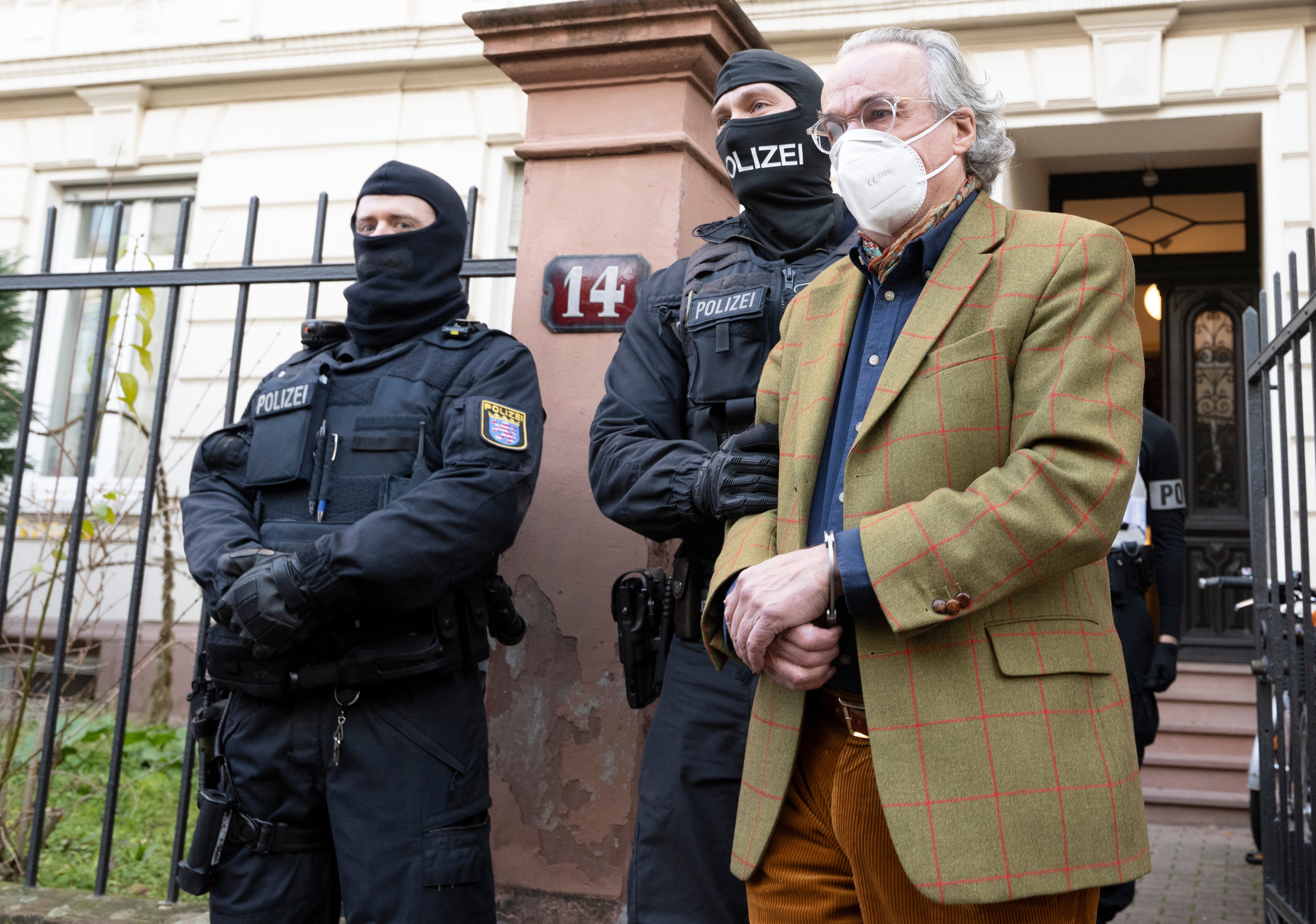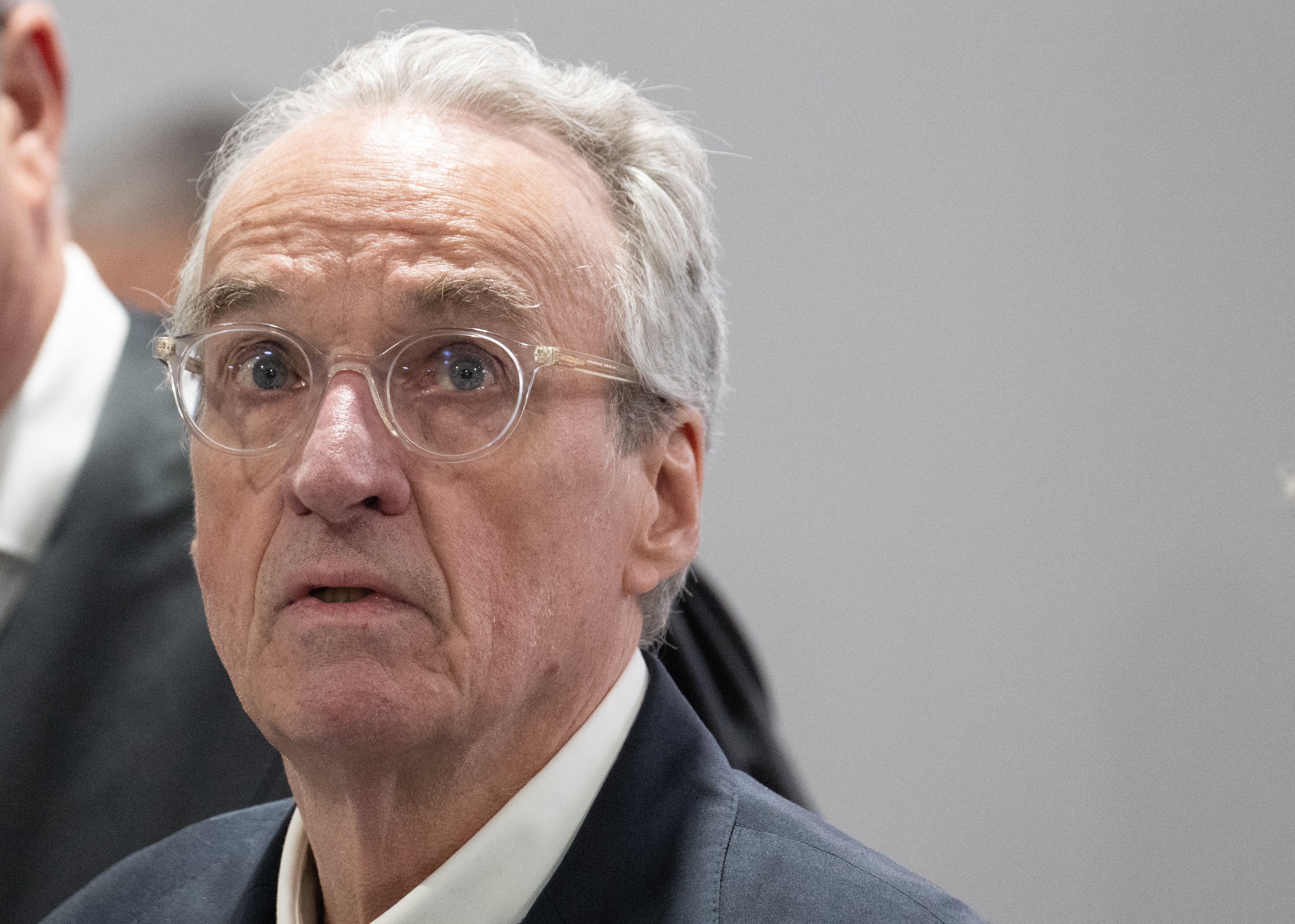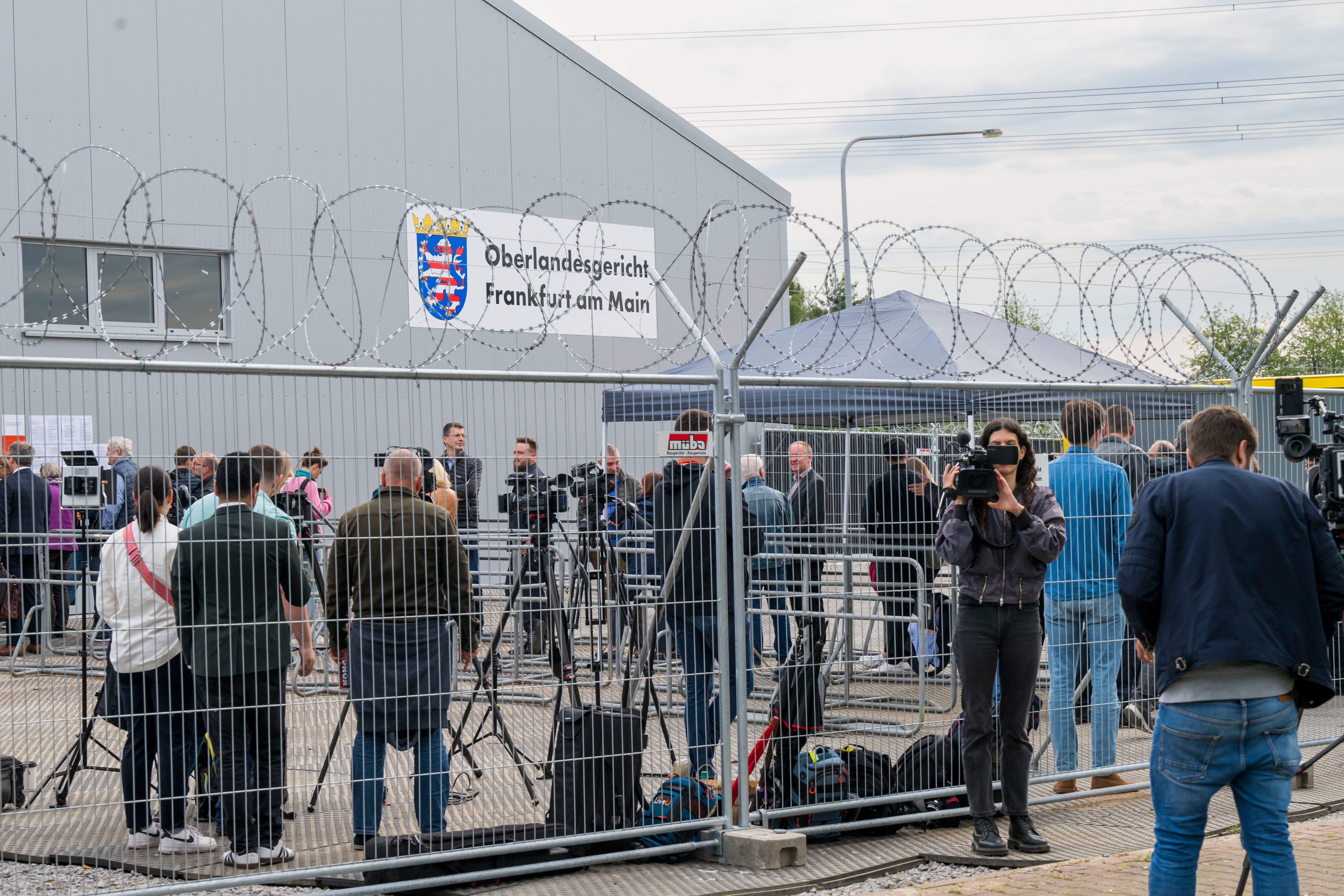Germany’s Prince Reuss in court accused of leading ‘Reichsbürger’ coup plot that shocked the country
The group planned to storm into the parliament building in Berlin and arrest lawmakers, according to prosecutors

Your support helps us to tell the story
From reproductive rights to climate change to Big Tech, The Independent is on the ground when the story is developing. Whether it's investigating the financials of Elon Musk's pro-Trump PAC or producing our latest documentary, 'The A Word', which shines a light on the American women fighting for reproductive rights, we know how important it is to parse out the facts from the messaging.
At such a critical moment in US history, we need reporters on the ground. Your donation allows us to keep sending journalists to speak to both sides of the story.
The Independent is trusted by Americans across the entire political spectrum. And unlike many other quality news outlets, we choose not to lock Americans out of our reporting and analysis with paywalls. We believe quality journalism should be available to everyone, paid for by those who can afford it.
Your support makes all the difference.The alleged leaders of a suspected far-right plot to topple Germany’s government went on trial on Tuesday, in a case that shocked the country.
Nine defendants, including a prince and former soldiers, faced judges at a special warehouse-like courthouse built on the outskirts of Frankfurt to accommodate the large number of defendants, lawyers and media dealing with the case.
About 260 witnesses are expected at a trial that the Frankfurt state court expects to extend well into 2025, one of three related trials that in total involve more than two dozen suspects.
The defendants include the highest-profile suspects in the alleged plot, among them Heinrich XIII Prince Reuss, whom the group allegedly planned to install as Germany’s provisional new leader; Birgit Malsack-Winkemann, a judge and former lawmaker with the far-right Alternative for Germany party; and former German military officers.
Most of them are charged with belonging to a terrorist organization that was founded in July 2021 with the aim of “doing away by force with the existing state order in Germany,” and also with “preparation of high treasonous undertaking.”

Reuss and Rïdiger von Pescatore, a former paratrooper, are alleged to have been the group’s ringleaders.
Prosecutors have said that the accused believed in a “conglomerate of conspiracy myths,” including Reich Citizans and QAnon ideology, and were convinced that Germany is ruled by a so-called deep state. Adherents of the Reich Citizens movement reject Germany’s postwar constitution and have called for bringing down the government, while QAnon is a global conspiracy theory with roots in the United States.
“These aren’t harmless cranks, but dangerous terror suspects,” German Interior Minister Nancy Faeser said in a statement as the trial started.
Lawyers for Reuss disputed the charges. “He is being depicted here as the big monster, the leader of the whole story, but none of that is true,” defense attorney Hans-Otto Sieg told reporters. “But we will straighten that out.”
The group planned to storm into the parliament building in Berlin and arrest lawmakers, according to prosecutors. It allegedly intended to negotiate a post-coup order primarily with Russia, as one of the allied victors of World War II.
The plotters allegedly had about 500,000 euros ($543,000) in funding and access to an arsenal, including 380 firearms and nearly 350 weapons that could be used for stabbing, as well as equipment such as bulletproof vests and handcuffs. Federal prosecutors say they had drawn up several “lists of enemies” to be used in the takeover of regional and local authorities, and that the group’s members were “aware the planned takeover of power would be linked with the killing of people.”
Prosecutors say that Reuss tried to contact Russian officials in 2022 to win Moscow’s support for the plan, and it isn’t clear whether Russia responded.
The defendants in Frankfurt include a Russian woman accused of supporting a terrorist organization, in part by allegedly setting up a contact with the Russian Consulate in Leipzig and accompanying Reuss there.

The Frankfurt trial, while the most prominent, is the second of three trials focusing on the plot to open. They involve a total of 26 suspects. Originally there were 27, but one man charged in Frankfurt died before the trial.
A trial of nine people in Stuttgart that began at the end of April is focusing on the “military arm” of the plot, which prosecutors say was tasked with implementing the plans drawn up by the alleged leaders.
A third trial, opening in Munich on June 18, will feature the other eight suspects.
The alleged coup plot came to light with a slew of arrests in December 2022. But officials had long warned that far-right extremists pose the biggest threat to Germany’s domestic security.
That threat was highlighted by the killing of a regional politician and an attempted attack on a synagogue in 2019. A year later, far-right extremists taking part in a protest against pandemic restrictions tried and failed to enter the parliament building in Berlin.
In a separate case, five people went on trial in Koblenz a year ago over an alleged plot by a group calling itself United Patriots — which prosecutors say also is linked to the Reich Citizens milieu — to launch a far-right coup and kidnap Germany’s health minister.
In January, a report that extremists met to discuss the deportation of millions of immigrants, including some with German citizenship, triggered mass protests against the rise of the far-right.
Some members of Alternative for Germany reportedly attended the meeting. The party, which has enjoyed strong support over the past year, sought to distance itself from the event, while also decrying the reporting of it.